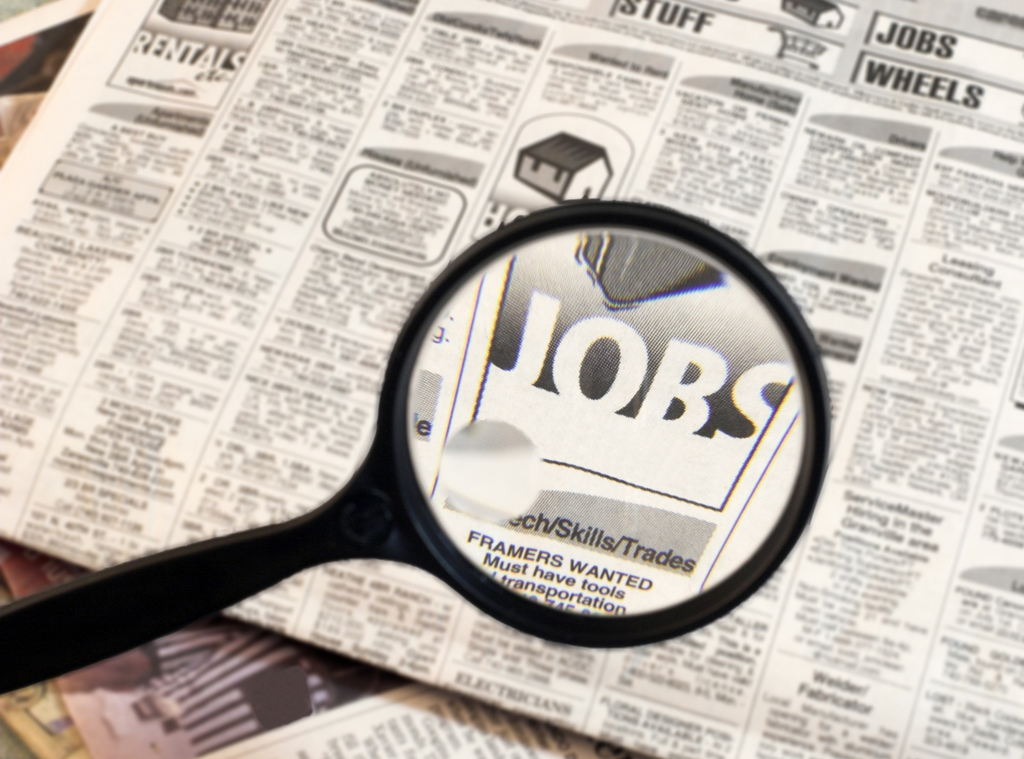By Reade Pickert, Bloomberg News (via TNS).
U.S. job openings fell in July by more than expected to a more than two-year low, offering fresh evidence that labor demand is cooling.
The number of available positions decreased to 8.83 million from 9.17 million in June, the Bureau of Labor Statistics’ Job Openings and Labor Turnover Survey, or JOLTS, showed Tuesday. It marked the sixth decline in the last seven months.
The so-called quits rate, which measures voluntary job leavers as a share of total employment, dropped to 2.3%, the lowest since the start of 2021. That implies Americans are less confident in their ability to find another job in the current market.
The drop in openings reflected declines in professional and business services, health care and government.
Fewer vacancies paired with increased labor force participation have allowed for greater balance in the labor market and helped temper wage growth. Despite the easing in demand for workers, unemployment remains historically low.
This trend has been key to growing hopes that the U.S. can avoid a recession despite the Federal Reserve’s aggressive rate hikes. Fed Chair Jerome Powell also suggested last week that should the labor market continue to loosen, inflation can keep on its downward path.
“The Fed is concerned that rapid wage growth might stoke inflationary pressures in 2024, but wage growth is likely to slow in coming months with workers seeing fewer opportunities to raise wages by switching jobs,” Bill Adams, chief economist at Comerica Bank, said in a note.
The median forecast in a Bloomberg survey of economists called for 9.5 million vacancies. U.S. Treasury yields slid after the figures, while the S&P 500 extended gains.
Openings ratio
The ratio of openings to unemployed people retreated to 1.5, the lowest since September 2021. At its peak in 2022, the ratio was 2 to 1.
Hires declined to the lowest level since January 2021. The number of hires has dropped by 458,000 over the latest two months, the largest decrease since the end of 2020.
The data precede Friday’s monthly jobs report, which is currently forecast to show employers added 170,000 jobs in August. That figure, when paired with the preliminary benchmark revision out last week, highlights the measured slowdown in hiring over the past year.
Layoffs were little changed. Given lingering worker shortages and the resilience of American consumers, companies remain reluctant to discharge employees.
Some economists have questioned the reliability of the JOLTS statistics given the survey’s low response rate. By the end of 2022, it had fallen to about 31%, roughly half the rate just three years earlier.
Read more: U.S. Consumer Confidence Falls By More Than Forecast in August
Separate figures from the Conference Board on Tuesday showed Americans are less optimistic about their ability to find a job. The share of respondents in that report that noted jobs were hard to get rose to the highest since April 2021.
What Bloomberg Economics says…
“Labor-market data through July shows just what the Fed wants to see: Slower job growth and a still-low unemployment rate as excess labor demand dissipates.”
— Stuart Paul, economist
___
©2023 Bloomberg L.P. Visit bloomberg.com. Distributed by Tribune Content Agency, LLC.
Thanks for reading CPA Practice Advisor!
Subscribe Already registered? Log In
Need more information? Read the FAQs
Tags: Accounting, Payroll




